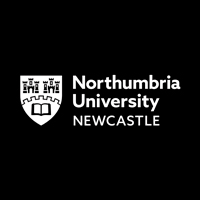fees waived
Occupational Therapy, BSc (Hons)
Northumbria University, United Kingdom
Subject ranking
UK / CUG 2024 7th
UK / CUG 2025 34th
UK / Guardian 2025 39th
Costs
food & rentS$17.1K / year
Entry requirements
Scholarships
Unlimited quantity
Unlimited quantity
Unlimited quantity
Limited quantity
Information
Code
Intakes
Website (External)
Programmes
Information
Duration
2028
Course summary
As an occupational therapist, you will empower people to live life to their full potential, overcoming physical and mental health difficulties, minimising the impact of disability and promoting independent living.Successful students studying Occupational Therapy at our Coach Lane Campus will be skilled in creative problem-solving, communication and building relationships. If you want a career working with a variety of people, where no two days are the same, we will assist you to develop the confidence, skills and knowledge for a life-long career in occupational therapy.You will be taught by staff actively engaged in occupational therapy research and experts from a variety of practice environments. You will learn through a range of methods including lectures, practicals and simulation. The syllabus includes physical and behavioural sciences, medical and mental health conditions, occupational therapy theory and practice, legislation and social care policy, and inter- professional learning. You can also access our highly- specialised Clinical Skills Centre, enabling you to link theory with practice.With a strong emphasis on practical work, 40% of your time will be in practice placements, spread throughout the three-year Occupational Therapy degree course. Placement settings will vary, including NHS Trusts, local authorities, residential care, charities and special schools; you also have the opportunity to select one ‘elective’ placement which may be abroad.A degree in Occupational therapy will enable you to apply for registration with the Health and Care Professions Council (HCPC) to gain state registration to practice as an Occupational Therapist.In line with the principles and values which underpin the NHS constitution, the University expects all students undertaking programmes which lead to registration as a health professional to demonstrate the NHS values. For a full list of the modules on your course, please access the course pages at www.northumbria.ac.uk Your tutors will use a variety of teaching methods, which may include lectures, seminars, problem-based workshops, case discussions, practical activities, group work and tutorials. Teaching is backed up by a well-designed support system that will underpin your learning journey. You will have access to a Guidance Tutor with whom you can discuss any academic issues. Extensive feedback from both tutors and peers is built into the course.Modules
Assessment method
Professional bodies
Professionally accredited courses provide industry-wide recognition of the quality of your qualification.
For a full list of the modules on your course, please access the course pages at www.northumbria.ac.uk
A local representative of Northumbria University in Singapore is available online to assist you with enquiries about this course.

